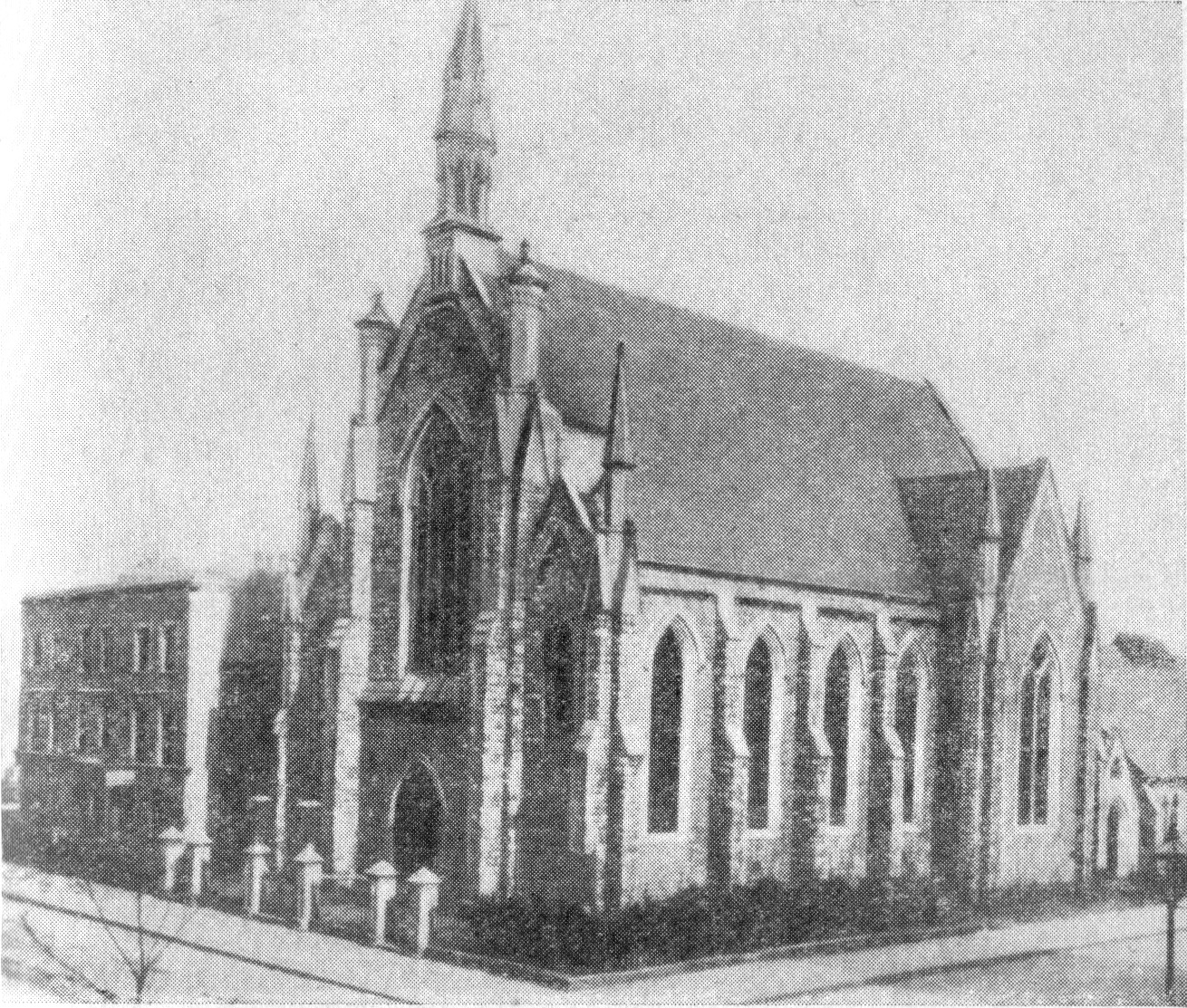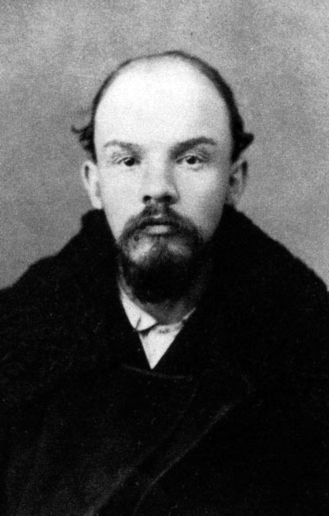5th Congress of the Russian Social Democratic Labour Party on:
[Wikipedia]
[Google]
[Amazon]
 The 5th Congress of the
The 5th Congress of the
Trotsky
'. Routledge Historical Biographies. London: Routledge, 2003. p. 49 Thirty-five sessions of the Congress were held in the Brotherhood Church in Hackney, during which stormy debates took place. Service, Robert.
Stalin: A Biography
'. Cambridge, Massachusetts: Belknap Press of Harvard University Press, 2005. p. 65
 During the Congress, the Bolshevik and Menshevik factions of the party clashed. The Bolsheviks argued in favour of preparations for an armed uprising against Czarist rule, which Menshevik leader
During the Congress, the Bolshevik and Menshevik factions of the party clashed. The Bolsheviks argued in favour of preparations for an armed uprising against Czarist rule, which Menshevik leader
Stalin: a Critical Survey of Bolshevism
'. Gardners Books, 2007. p. 107 Another debated issue was "expropriations". To support their political activities, the RSDLP and other revolutionary groups in Russia (such as the
The Fifth Congress of the R.S.D.L.P.
'
"The London Congress of the Russian Social-Democratic Labour Party
– (Notes of a Delegate)", J.V. Stalin, June 20 and July 10, 1907, on marxists.org {{CPSU Congresses 1907 in England 1907 conferences Congresses of the Russian Social Democratic Labour Party May 1907 events June 1907 events
 The 5th Congress of the
The 5th Congress of the Russian Social Democratic Labour Party
The Russian Social Democratic Labour Party (RSDLP; in , ''Rossiyskaya sotsial-demokraticheskaya rabochaya partiya (RSDRP)''), also known as the Russian Social Democratic Workers' Party or the Russian Social Democratic Party, was a socialist pol ...
was held in London
London is the capital and List of urban areas in the United Kingdom, largest city of England and the United Kingdom, with a population of just under 9 million. It stands on the River Thames in south-east England at the head of a estuary dow ...
between May 13 and June 1, 1907. The 5th Congress had the largest attendance of the Congresses of the unified RSDLP.Thatcher, Ian D. Trotsky
'. Routledge Historical Biographies. London: Routledge, 2003. p. 49 Thirty-five sessions of the Congress were held in the Brotherhood Church in Hackney, during which stormy debates took place. Service, Robert.
Stalin: A Biography
'. Cambridge, Massachusetts: Belknap Press of Harvard University Press, 2005. p. 65
Delegations
338 delegates attended the Congress. There were: * 105Bolshevik
The Bolsheviks (russian: Большевики́, from большинство́ ''bol'shinstvó'', 'majority'),; derived from ''bol'shinstvó'' (большинство́), "majority", literally meaning "one of the majority". also known in English ...
delegates, representing 33,000 members
* 97 Menshevik
The Mensheviks (russian: меньшевики́, from меньшинство 'minority') were one of the three dominant factions in the Russian socialist movement, the others being the Bolsheviks and Socialist Revolutionaries.
The factions em ...
delegates representing 43,000 members
* 59 Bundist delegates representing 33,000 members
* 44 Polish Social Democrat (SDKPiL) delegates, representing 28,000 members
* 29 Latvian Social Democrat delegates, representing 13,000 members
* 4 'non-faction' delegates
300 of the delegates had voting rights.Minczeles, Henri. ''Histoire générale du Bund: un mouvement révolutionnaire juif''. Paris: Editions Austral, 1995. p. 475 Vladimir Lenin
Vladimir Ilyich Ulyanov. ( 1870 – 21 January 1924), better known as Vladimir Lenin,. was a Russian revolutionary, politician, and political theorist. He served as the first and founding head of government of Soviet Russia from 1917 to 1 ...
was a delegate, representing the Upper Kama region. Also attending were Joseph Stalin
Joseph Vissarionovich Stalin (born Ioseb Besarionis dze Jughashvili; – 5 March 1953) was a Georgian revolutionary and Soviet Union, Soviet political leader who led the Soviet Union from 1924 until his death in 1953. He held power as Ge ...
and Leon Trotsky
Lev Davidovich Bronstein. ( – 21 August 1940), better known as Leon Trotsky; uk, link= no, Лев Давидович Троцький; also transliterated ''Lyev'', ''Trotski'', ''Trotskij'', ''Trockij'' and ''Trotzky''. (), was a Russian ...
.
Debates
 During the Congress, the Bolshevik and Menshevik factions of the party clashed. The Bolsheviks argued in favour of preparations for an armed uprising against Czarist rule, which Menshevik leader
During the Congress, the Bolshevik and Menshevik factions of the party clashed. The Bolsheviks argued in favour of preparations for an armed uprising against Czarist rule, which Menshevik leader Julius Martov
Julius Martov or L. Martov (Ма́ртов; born Yuliy Osipovich Tsederbaum; 24 November 1873 – 4 April 1923) was a politician and revolutionary who became the leader of the Mensheviks in early 20th-century Russia. He was arguably the close ...
denounced as ' putschist'. Another disagreement was how the party should relate to the trade union
A trade union (labor union in American English), often simply referred to as a union, is an organization of workers intent on "maintaining or improving the conditions of their employment", ch. I such as attaining better wages and benefits ...
movement.Minczeles, Henri. ''Histoire générale du Bund: un mouvement révolutionnaire juif''. Paris: Editions Austral, 1995. pp. 194–195 The Mensheviks argued for creating a 'Workers' Congress', as a first step towards transforming the party into a West European-style legal Social Democratic party.
On both of these issues the Bolsheviks were supported by Polish and Latvian Social Democrats, guaranteeing a revolutionary majority at the Congress.
In the clashes between the Bolshevik–Polish–Latvian and the Menshevik–Bundist sides, Trotsky (who had escaped from captivity) acted as an intermediary (attending as a non-voting delegate). Having adopted a 'centrist' position, he was the sole person at the Congress who could mediate between the two sides. Souvarine, Boris. Stalin: a Critical Survey of Bolshevism
'. Gardners Books, 2007. p. 107 Another debated issue was "expropriations". To support their political activities, the RSDLP and other revolutionary groups in Russia (such as the
Socialist Revolutionary Party
The Socialist Revolutionary Party, or the Party of Socialist-Revolutionaries (the SRs, , or Esers, russian: эсеры, translit=esery, label=none; russian: Партия социалистов-революционеров, ), was a major politi ...
and various anarchist
Anarchism is a political philosophy and movement that is skeptical of all justifications for authority and seeks to abolish the institutions it claims maintain unnecessary coercion and hierarchy, typically including, though not necessar ...
factions) used "expropriations", a euphemism for armed robberies of government offices or private businesses. Lenin and the most militant Bolsheviks supported continued "expropriations", while the Mensheviks advocated a non-violent approach to revolution. The 5th Congress passed a resolution which condemned participation in or assistance to all violent activity, including "expropriations", as "disorganising and demoralizing", and called for all party militias to be disbanded. This resolution passed with 65 % supporting and 6 % opposing (others abstained or did not vote). All Mensheviks and even some Bolsheviks voted in favor. Ironically, one of the most famous "expropriations" (the 1907 Tiflis bank robbery, organized by a small group of Bolsheviks) took place only weeks after this vote.
Naming dispute
Another controversy erupted over the naming of the Congress. The Bolsheviks referred to the meeting as the "Fifth Congress". One delegate,Fyodor Dan
Fyodor Ilyich Dan (surname at birth: Gurvich) (died 22 January 1947) was a political activist and journalist who helped found the Menshevik faction of the Russian Social Democratic Labour Party.
Background
Fyodor Dan was born to a Jewish family ...
, opposed this naming. In 1905 the Bolsheviks had held a " Third Party Congress", which the Mensheviks and the Bund didn't recognize as an official party meeting. Therefore, they objected to the 1907 meeting being designated the "Fifth Congress". Bundist delegate L. G. Shapiro proposed the name "London Congress of the Russian Social Democratic Labour Party", which was adopted.V. I. Lenin. The Fifth Congress of the R.S.D.L.P.
'
Election
Although the Congress saw several victories for the Bolsheviks, in the elections to theCentral Committee
Central committee is the common designation of a standing administrative body of communist parties, analogous to a board of directors, of both ruling and nonruling parties of former and existing socialist states. In such party organizations, the ...
and the editorial board of the party newspaper ''Sotsial-Demokrat'' neither of the Russian factions won a majority. The Polish and Latvian Social Democrats, who were troubled by the Bolshevik-Menshevik division, supported both sides at various times. The newly elected Central Committee had twelve full members and 22 alternate members;
The elected Central Committee was sharply divided along factional lines, and could not function as a unified party leadership. At the end of the congress, the Bolshevik delegates elected a Bolshevik Centre led by Lenin.
Two Bundists were included in the Central Committee at a later stage, Raphael Abramovitch and Mikhail Liber
Mikhail Isaakovich Liber (5 June 1880 – 4 October 1937), sometimes known as Mark Liber, was a leader of the General Jewish Workers' Union (the 'Bund'). He also played a role in the Russian Social-Democratic Workers' Party (RSDRP) and was a le ...
.
References
Bibliography
* * * *"The London Congress of the Russian Social-Democratic Labour Party
– (Notes of a Delegate)", J.V. Stalin, June 20 and July 10, 1907, on marxists.org {{CPSU Congresses 1907 in England 1907 conferences Congresses of the Russian Social Democratic Labour Party May 1907 events June 1907 events